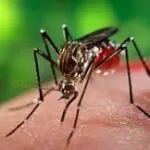In groundbreaking research, Massachusetts General Hospital (MGH) scientists have discovered that the century-old Bacillus Calmette-Guérin (BCG) vaccine, originally designed to combat tuberculosis, significantly shields individuals with type 1 diabetes from severe COVID-19 and other infectious diseases.
The findings come from two consecutive randomized, double-blinded, placebo-controlled trials that demonstrate the BCG vaccine’s prolonged protection throughout the US COVID-19 pandemic, irrespective of viral variants.
“Individuals with type 1 diabetes are highly susceptible to infectious diseases and had worse outcomes when infected with SARS-CoV-2,” said Dr. Denise Faustman, senior author, director of MGH’s Immunobiology Laboratory, and Associate Professor of Medicine at Harvard Medical School. “Published data from other investigators show mRNA COVID-19 vaccines are not very effective in this vulnerable group. But we’ve shown that BCG can protect type 1 diabetics from COVID-19 and other infectious diseases.”
The 18-month Phase III trial, published in iScience, was conducted during the pandemic’s late stages when the Omicron variant was prevalent. An earlier 15-month Phase II trial, conducted early in the pandemic, was published in Cell Reports Medicine.
Amid the pandemic, multiple international trials explored whether BCG, as a single shot or booster for previously vaccinated adults, offered protection against COVID-19. While some trials showed efficacy, others did not. The MGH trials stand out due to key differences: participants received five or six doses of a particularly potent BCG strain, and the US population involved had never been vaccinated with BCG or exposed to tuberculosis, unlike in other studies.
“Giving multiple doses of the vaccine may speed up the process of achieving full protection,” noted Faustman. “The Phase II and Phase III trials conducted at MGH were unique because the study population had never received a BCG vaccine and was never exposed to TB. This could have obscured any benefit from a BCG booster in other trials.”
The MGH trials enrolled 141 participants with type 1 diabetes: 93 in the treatment group received five or six doses of BCG vaccine, while 48 in the placebo group received a sham vaccine, all followed for 36 months to capture diverse COVID-19 genetic variants and various infectious disease exposures.
During the Phase II trial (January 2020 to April 2021), the BCG vaccine’s efficacy was 92%, similar to the Pfizer and Moderna vaccines in healthy adults. Over the full 34 months of the US COVID-19 pandemic, BCG showed a significant efficacy of 54.3%, with BCG-treated participants exhibiting lower rates of viral, bacterial, and fungal infections, as well as COVID-19 itself.
The BCG vaccine’s immunity likely lasts decades, outlasting the few months’ effectiveness of current COVID-19 and influenza vaccines. “The BCG vaccine offers near-lifelong protection against every COVID-19 variant, the flu, respiratory syncytial virus, and other infectious diseases,” said Faustman.
Some BCG-treated participants also received commercially available COVID-19 vaccines during the Phase III trial, with no observed increase in efficacy or harm from combining the vaccines. “Our study showed that the BCG vaccine neither increased the efficacy of the COVID-19 vaccine nor was it harmful to those who received it,” said Faustman. “As the pandemic continues, it will be interesting to see if we can work with the FDA to allow access to the BCG vaccine for type 1 diabetics, who appear particularly at risk for all infectious diseases.”
This research was supported by The Iacocca Foundation, Boston, MA. Other contributing authors include Willem M. Kühtreiber, Emma R. Hostetter, Grace E. Wolfe, Maya S. Vayshnaw, Rachel Goldstein, Emily R. Bulczynski, Neeshi S. Hullavarad, Joan E. Braley, and Hui Zheng.











